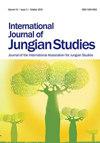集体创伤
Q4 Psychology
引用次数: 22
摘要
要使世界范围的集体暴力和创伤瘟疫所释放的毁灭性情感力量人性化,就需要培养整体意识。本文发展了一种生态学观点,将人类社区视为生态系统,将个人视为嵌入这些环境中的个体。这个视角提供了一个足够大的空间来产生新的想法。这一进程是在刚果民主共和国东部危机地区实地调查的压力下发展起来的。为了探索人类生态系统的社会心理和政治特征,里德尔使用了一张双轴地图,即五个世界的曼陀罗。该地图以动态曼陀罗格式将横轴为家庭和社会世界,纵轴为自然和心灵世界,核心为根状世界纳入视野。里德尔将根茎世界视为人类遗传和密码、自然物理和社会文化的容器和共同创造的领域。根茎在五个球体元素之间的共振和协同现象中起着核心作用。共同体自我状态是一个集合,包含了曼陀罗所有五个领域的元素。Riedel探索了决定一个群体的连通性和趋势的聚合和进化的动态力量的模式。例如,在极端严重的集体暴力和创伤的社区状态下,地图中的社会文化和自然心理维度是“精神错乱的”,导致自然养育和人道伦理考虑与社会行为分离,细分领域占主导地位。通过情感共鸣,有目的的行动干预试图放松对痛苦集体的依恋,通过这种依恋,人们与他们所在群体的过去和现在的社会创伤联系在一起。因此,根际系统方法提高了人们对文化扣押动态的认识,文化扣押是社会文化困难的主要来源。本文章由计算机程序翻译,如有差异,请以英文原文为准。
Collective Trauma
Humanizing the devastating emotional forces released by the worldwide plague of collective violence and trauma demands developing integral awareness. This article develops an ecological perspective that views human communities as ecosystems and individuals as embedded in these environments. This perspective offers a space large enough to generate fresh ideas. The process evolved under the press of fieldwork in crisis areas in the eastern Democratic Republic of Congo. To explore psychosocial and political characteristics of human ecosystems Riedel employs a biaxial map, the Mandala of the Five Worlds. The map brings into purview in dynamic mandala format the Familial and Societal Worlds on the horizontal axis, the worlds of Nature and Mind on the vertical axis, and the Rhizome World at the core. Riedel views the rhizome world as a container and co-created field of human inheritances and codes, natural-physical and socio-cultural. The rhizome plays a central role in the resonance and synergistic phenomena interrelating elements of the five spheres. Community self-states are collective aggregates that involve elements from all five spheres of the mandala. Riedel explores patterns of dynamic forces of aggregation and evolution that determine a group’s connectivity and tendencies. For example, in community states of collective violence and trauma at extreme levels of severity, the socio-cultural and nature-mind dimensions of the map are “unhinged,” resulting in nature-nurture and humane-ethical considerations being split off from social behaviour with fractionizing fields dominating. Via emotional resonance, purposeful action interventions seek to loosen adhesion to the collectivity of suffering through which people are connected to the social traumas of their groups, past and present. Thus the rhizomic systems approach raises awareness about the dynamic of cultural seizures as major sources of sociocultural difficulties.
求助全文
通过发布文献求助,成功后即可免费获取论文全文。
去求助
来源期刊

International Journal of Jungian Studies
Psychology-Applied Psychology
CiteScore
1.10
自引率
0.00%
发文量
10
 求助内容:
求助内容: 应助结果提醒方式:
应助结果提醒方式:


